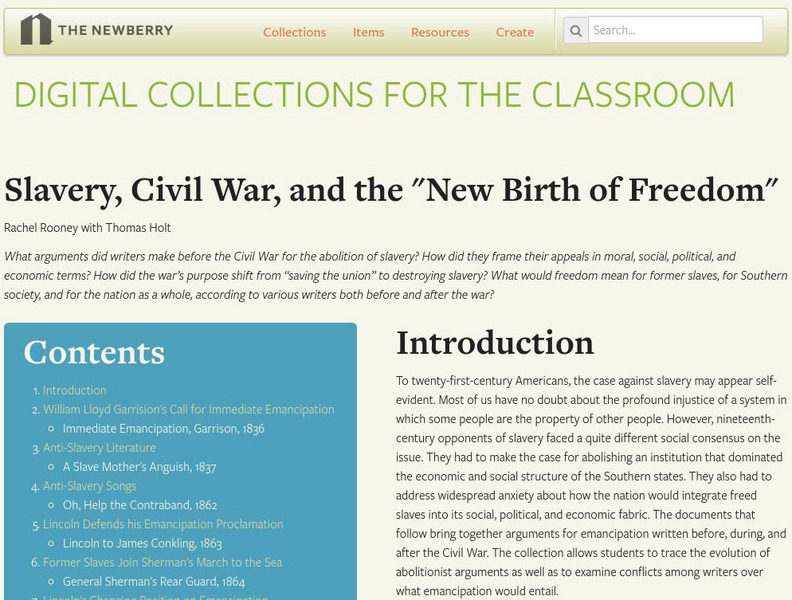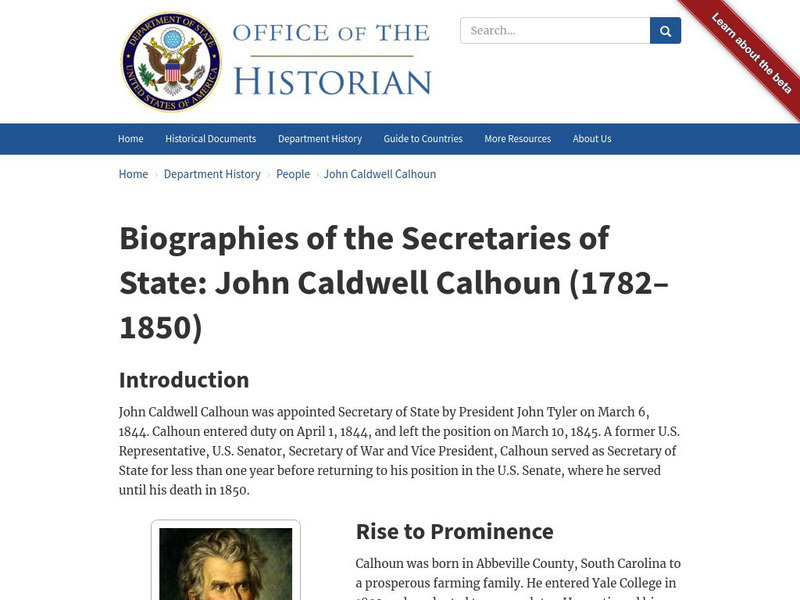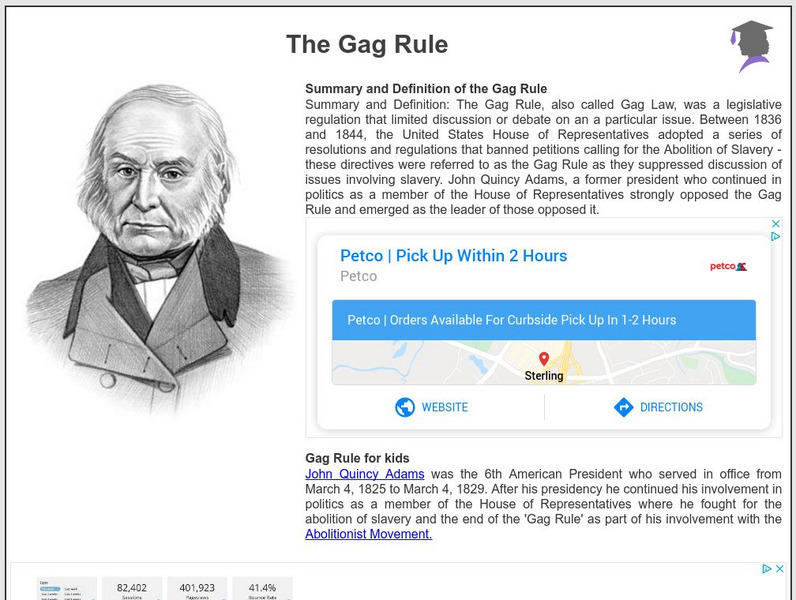US National Archives
Nara: Treasures of Congress: Struggles Over Slavery the "Gag" Rule
This National Archives and Records Administration site contains John Quincy Adams' response to the "gag" rule in the House of Representatives, May 25, 1836, which restricted discussion about slavery in Congress . Also included are images...
Henry J. Sage
Sage American History: Exchange Between Horace Greeley and Lincoln, 1862
Primary source excerpts from New York Tribune editorial letter written by abolitionist Horace Greeley followed by a response from President Abraham Lincoln published in the New York Times, 1862.
National Humanities Center
National Humanities Center: America in Class: A Pro Slavery Argument, 1857
A lesson that explores the argumments made by pro-slavery proponents in the United States prior to abolition.
The Newberry Library
Newberry Library: Slavery, Civil War, and the "New Birth of Freedom"
Newberry Library presents primary source materials from which students learn about the arguments made for abolition before the Civil War, how the appeals against slavery were framed, and what freedom would mean for the South and the...
US Department of State
Biographies of the Secretaries of State: John Caldwell Calhoun (1782 1850)
Short bio on John Calhoun, former U.S. Representative, U.S. Senator, Secretary of War and Vice President, who served as Secretary of State for less than one year before returning to his position in the U.S. Senate.
US Senate
Historical Minutes: Gag Rule: March 16, 1836
A look at how the Senate in 1836 imposed a gag rule on petitions that advocated the abolition of slavery. Information is from "Arguing about Slavery" by William Lee Miller.
CommonLit
Common Lit: Themes: Social Change & Revolution: Why Do People Resist Change?
This is a collection of Grade-Leveled texts (3-12) to address the question, "Why do people resist change?" Select a grade level and a collection of on grade-level reading passages on the topic comes up. [Free account registration...
Siteseen
Siteseen: American Historama: The Gag Rule
Details concerning the Gag Rule that limited discussion or debate on a particular issue and banned petitions calling for the abolition of slavery.








